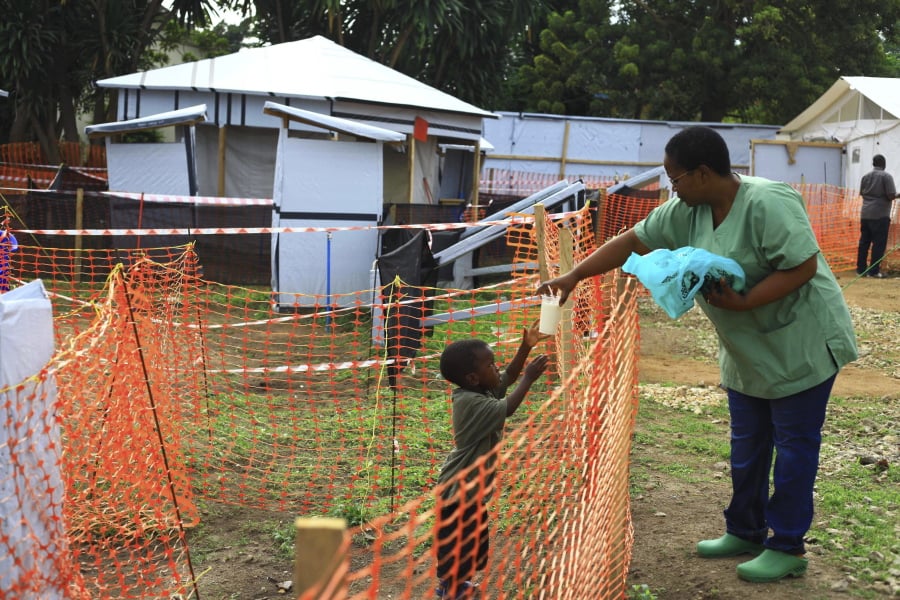KINSHASA, Congo — More than 1,000 people have died from Ebola in eastern Congo since August, the country’s health minister said Friday as hostility toward health workers continues to hamper efforts to contain the second-deadliest outbreak of the virus.
Health Minister Oly Ilunga told The Associated Press that four deaths in the outbreak’s epicenter of Katwa helped push the death toll to 1,008. Two more deaths were reported in the city of Butembo.
The outbreak declared almost nine months ago already had caused the most deaths behind the 2014-2016 outbreak in West Africa’s Guinea, Sierra Leone and Liberia that killed more than 11,000 people.
A volatile security situation and deep community mistrust have hampered efforts to control the epidemic in eastern Congo. Ebola treatment centers have come under repeated attack, leaving government health officials to staff clinics in the hotspots of Butembo and Katwa.
International aid organizations stopped their work in the two communities because of the violence. A Cameroonian epidemiologist working with WHO was killed last month during an assault on a hospital in Butembo.
Insecurity has become a “major impediment” to controlling the Ebola outbreak, Michael Ryan, WHO’s health emergencies chief, told reporters in Geneva earlier Friday.
He said 119 attacks have been recorded since January, 42 of them directed at health facilities, while 85 health workers have been wounded or killed. Dozens of rebel groups operate in the region, and political rivalries in part drives community rejection of health personnel.
“Every time we have managed to regain control over the virus and contain its spread, we have suffered major, major security events,” Ryan said. “We are anticipating a scenario of continued intense transmission” of the disease.
WHO has said the most recent Ebola outbreak remained contained to eastern Congo even as the number of cases rises in a dense, highly mobile population near the border with Uganda and Rwanda.
Many people fear going to Ebola centers, choosing instead to stay at home and risk transmitting the disease from the virus to caretakers and neighbors.
Residents of highly volatile Butembo believe Ebola was brought to the city on purpose, said Vianney Musavuli, 24.
“I am deeply saddened to learn that the number of Ebola deaths has exceeded 1,000,” Musavuli said “The problem is that people here in this area believe Ebola is a political thing, and that’s why residents are still attacking the teams in retaliation.”
Insecurity also has prevented vaccination teams from getting to some areas, further limiting the health response.



